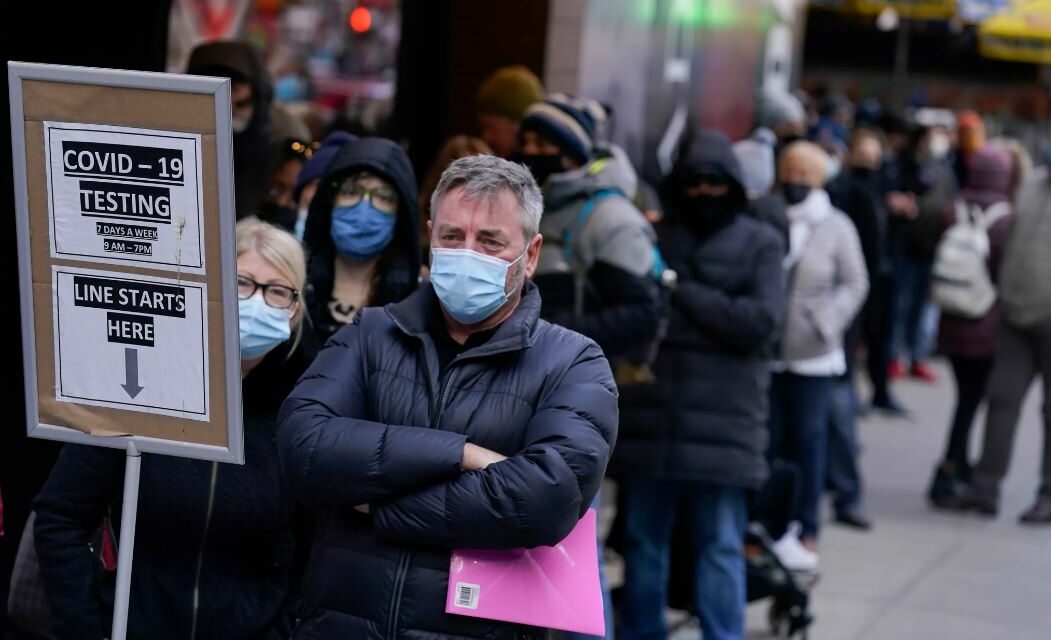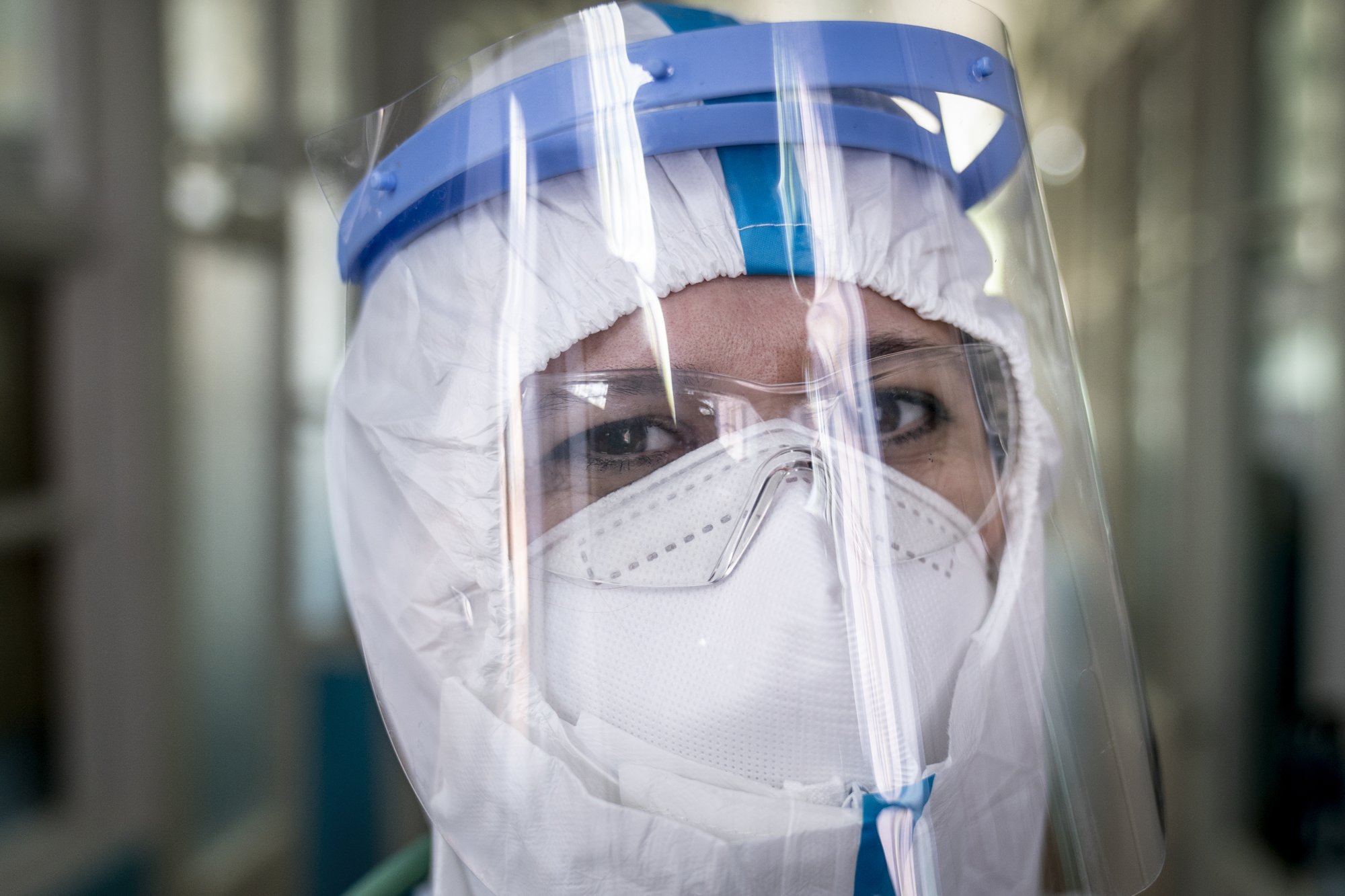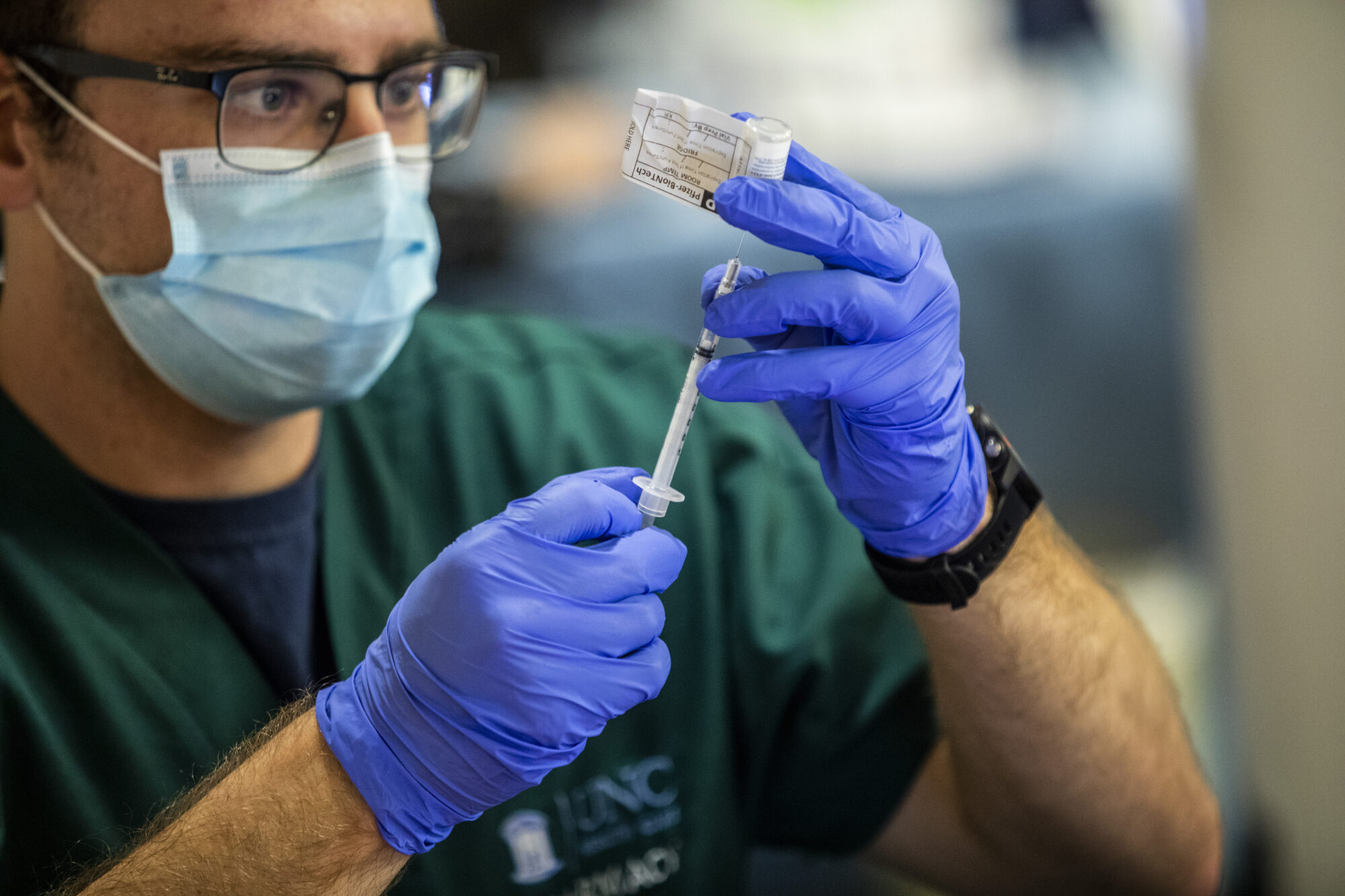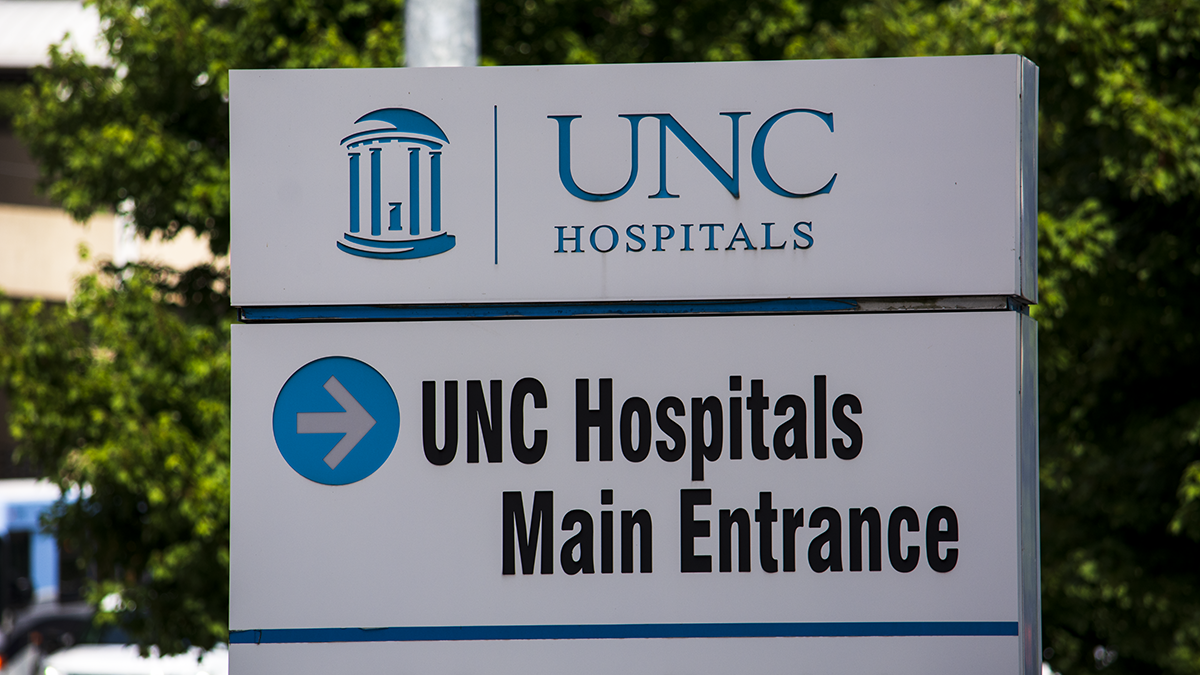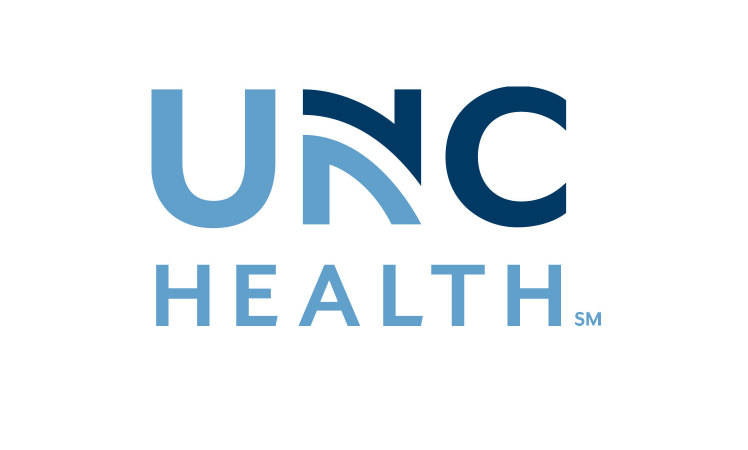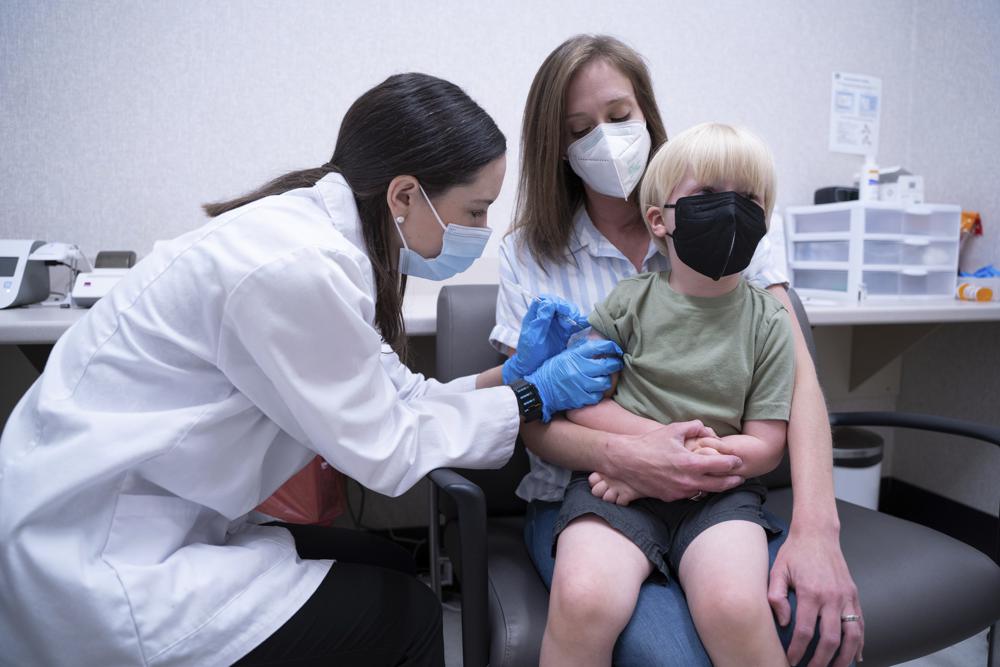The post-holiday spike in COVID-19 cases has pushed North Carolina to new records in both daily diagnoses and the percentage of tests being returned positive.
Now, local healthcare systems are facing shortages as the omicron variant continues to spread and providers either leave the industry citing vaccine requirements or are forced into to quarantine due to COVID exposure.
As we rang in the New Year Saturday, more than 19,600 COVID cases were identified in the state – the largest single-day spike of cases since the virus was first identified in North Carolina.
Facing these staggering numbers, Kody Kinsley, the newly appointed Secretary of the North Carolina Department of Health and Human Services (NCHHS), said COVID-19 should be at the forefront of everyone’s minds.
“The highly contagious omicron variant of COVID-19 is setting record case numbers across the country,” Kinsley said, “putting a strain on testing services and creating concern about hospital capacity.”
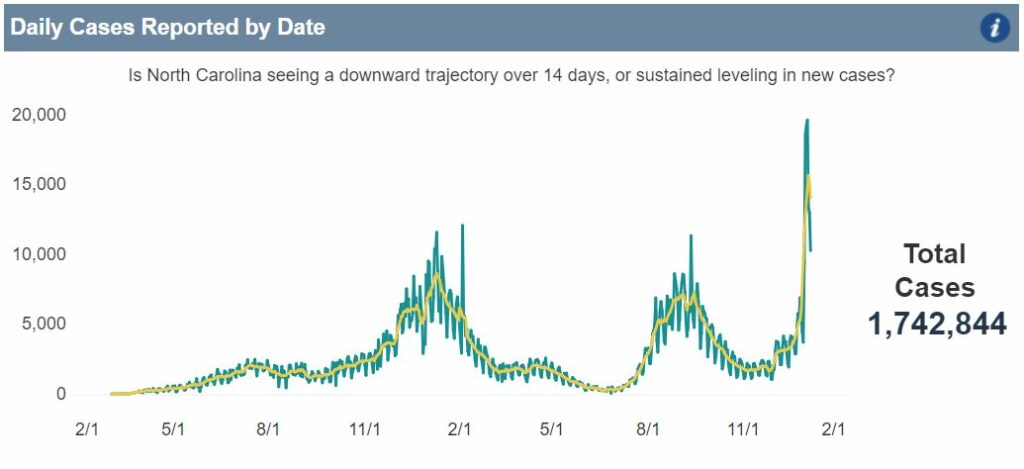
A graph showing the rising number of COVID-19 cases in the state (photo via the NCDHHS)
As of Tuesday, a whopping 29.7 percent of coronavirus tests came back positive. This is well above state health officials’ goal of a five percent or lower positivity rate – a target which was previously attained ahead of the delta surge this past summer.
Now, as confirmed cases of COVID-19 continue to rise, so do hospitalizations – both statewide and locally.
Across UNC Health, 420 COVID patients are hospitalized as of Tuesday, including 99 at UNC Hospitals in Chapel Hill. In total, Kinsley said more than 3,000 people are hospitalized across the state, marking the highest peak since the end of September.
“As of today, 3,008 people are hospitalized with COVID-19 and 603 people are in the ICU,” Kinsley said. “That’s 80 percent of our hospital beds and 85 percent of our ICU beds. We are concerned both for patient care and for staffing.”
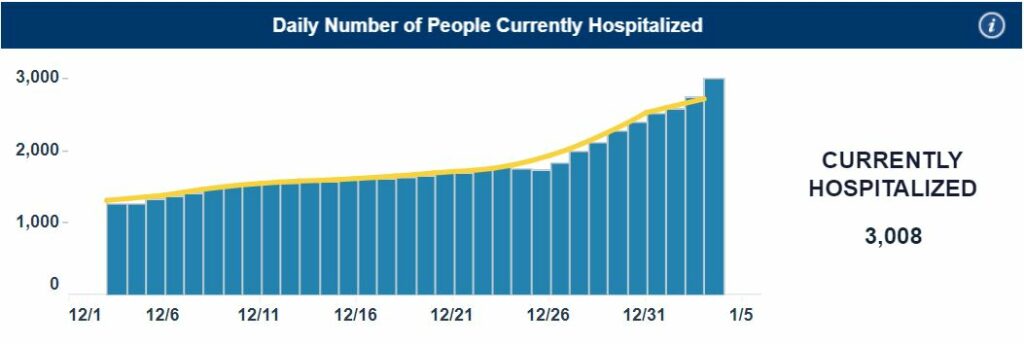
A graph depicting rising hospitalizations due to COVID-19 in the state (photo via NCDHHS)
This current spike in hospitalizations is a drastic increase from November data, just weeks before the omicron variant took hold in North Carolina. On November 20, the number of COVID patients across UNC Health hospitals dropped to a low of 77. At UNC Hospitals in Chapel Hill, it fell as low as 14 people around that time.
Also since the end of November, COVID-19 cases have risen 587 percent in Orange County, with 1,010 new cases reported last week.
Since July, UNC Health said more than 80 percent of all new COVID admissions, and more than 90 percent of ICU COVID admissions, have occurred in unvaccinated individuals. Kinsley said those numbers align with current state trends.
“Most people in the hospital are unvaccinated,” Kinsley said. “More than 87 percent of people in the ICU are unvaccinated. Vaccines are our way out of this. They provide best protection against severe illness, hospitalization, and death – and boosters are critical.”
Health officials say a decrease in hospitalizations would help ease the current strain on providers – especially amid staffing shortages. Across UNC Health, more than 650 employees are currently out due to COVID – whether it be from a positive test or community exposure that requires isolation.
While the CDC shortened it’s recommended time for isolation from 10 days to five in late December, decreased quarantine times aren’t enough to appease growing demand for care.
“We know our employees take all precautions to avoid getting sick,” said Alan Wolf, UNC Health’s Director of Local News, “but we are increasingly concerned about their wellbeing and the strain on our ability to care for patients.”
Due to staffing shortages, Wolf said UNC Health will continue to maintain all critical services but adjust operations as necessary. That includes closing some beds due to staffing constraints, reducing non-urgent procedures, and redeploying staff to the areas with the most need.
Some healthcare systems, including UNC Health, have also lost additional providers through new vaccine mandates – the most recent of which was discussed by Governor Roy Cooper at his press conference Tuesday.
“This week, I’ll extend Executive Order 224, which requires vaccinations or testing of state employees,” Cooper said. “When I extend that order, the Office of State Human Resources will have the authority to include boosters in the definition of being up to date on vaccines when the CDC takes that action.”
Over the course of 2021, multiple healthcare systems and government entities pushed for and then required their employees to get the COVID-19 vaccine. Since UNC Health announced its own COVID vaccine requirement on July 22, roughly 135 employees resigned, citing that requirement.
In addition, Wolf said about 55 employees were terminated due to non-compliance with the COVID vaccine policy on November 2.
“UNC Health regrets losing any teammates,” Wolf said, “but we believe that a mandatory vaccine program is in the best interest of public health and is essential for the safety of our patients, teammates and communities.”
Lead photo via AP/Seth Wenig.
Chapelboro.com does not charge subscription fees. You can support local journalism and our mission to serve the community. Contribute today – every single dollar matters.

